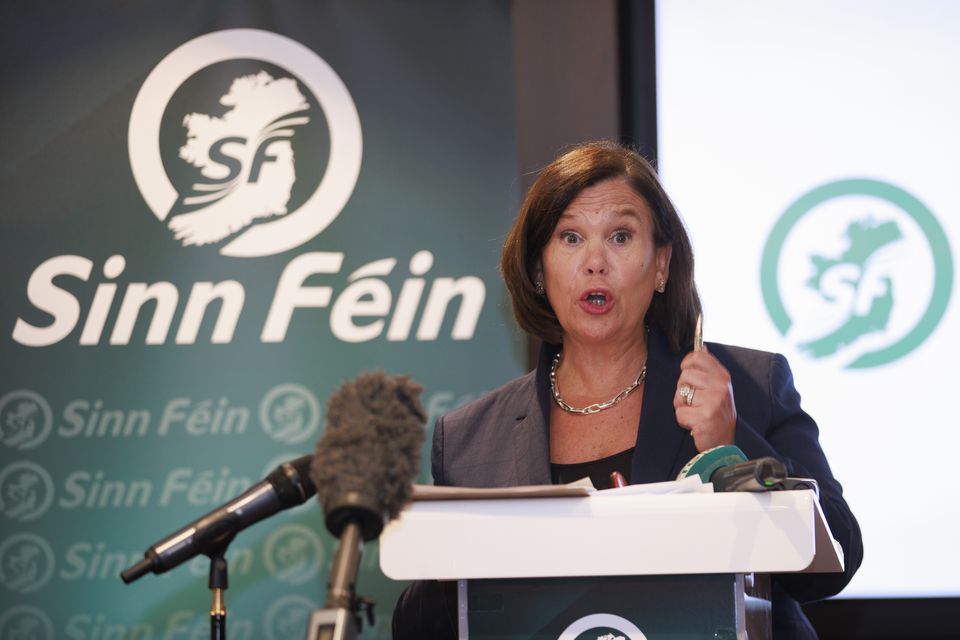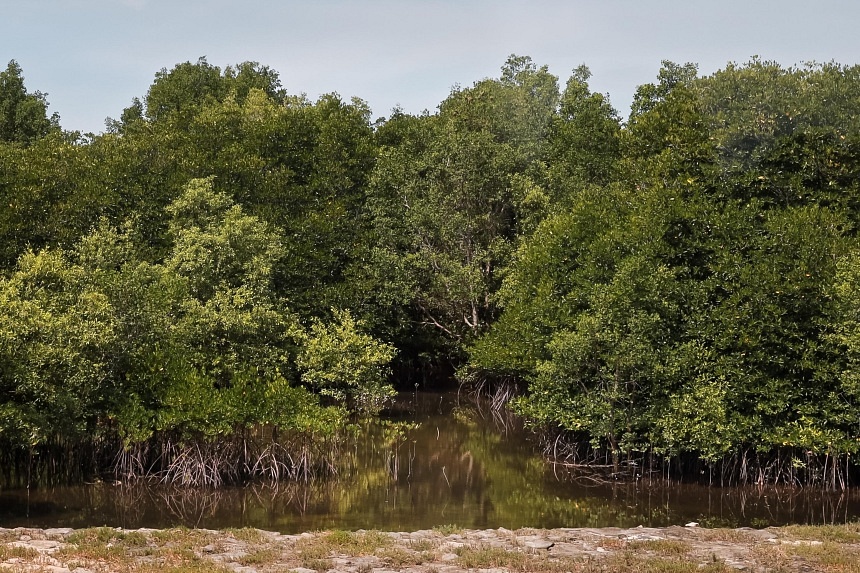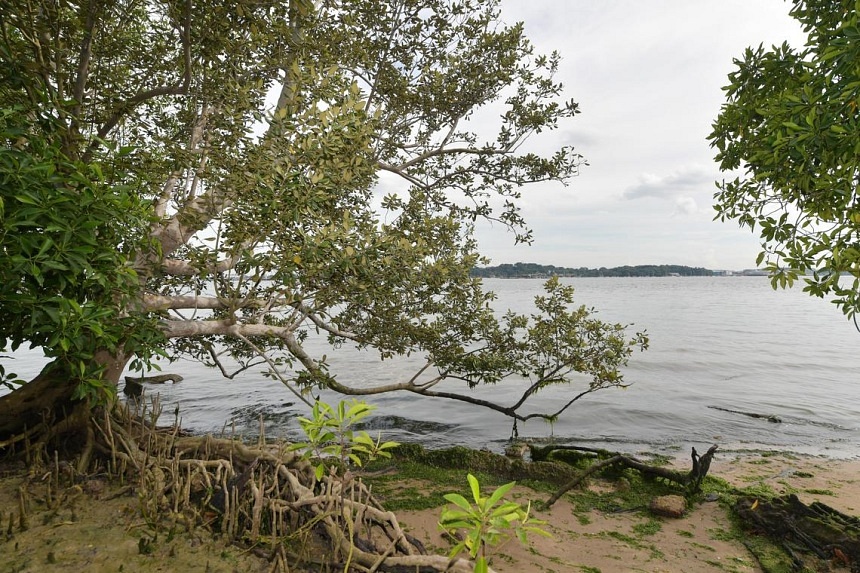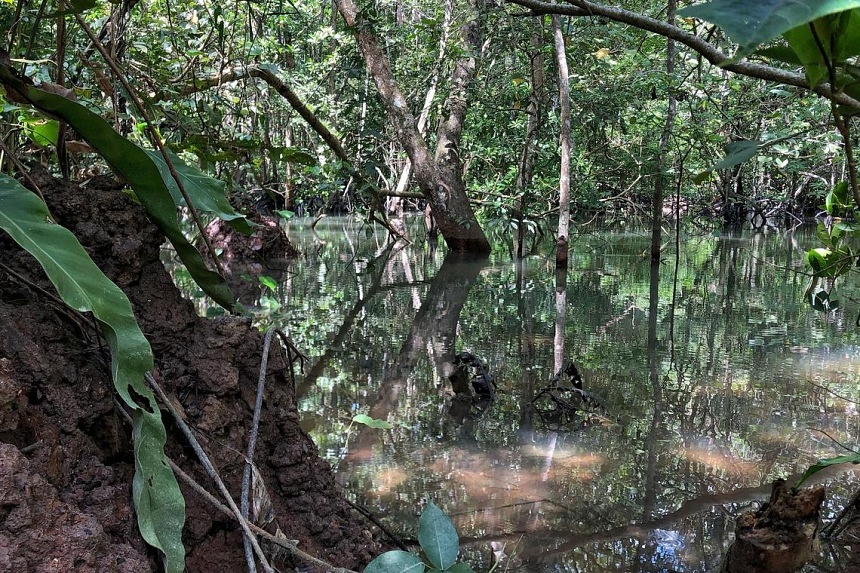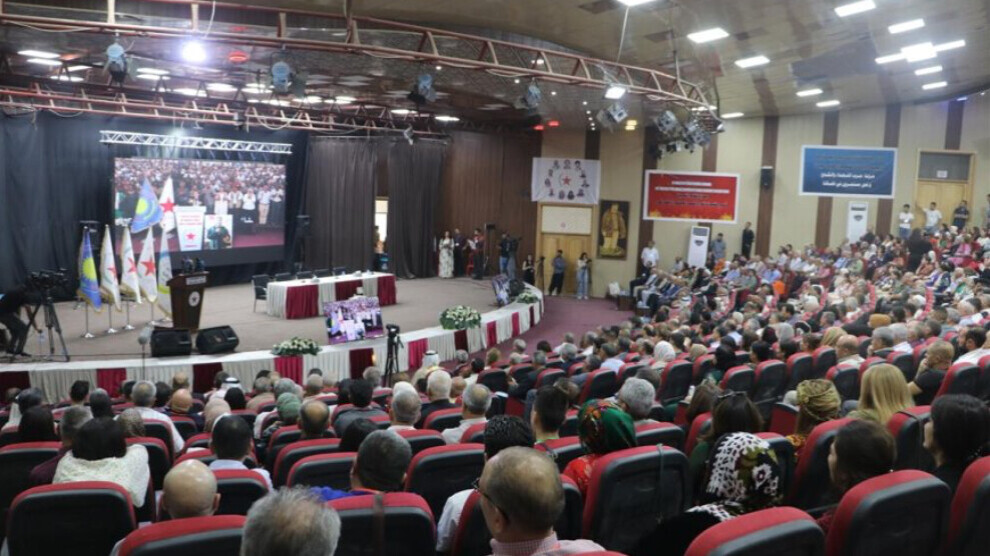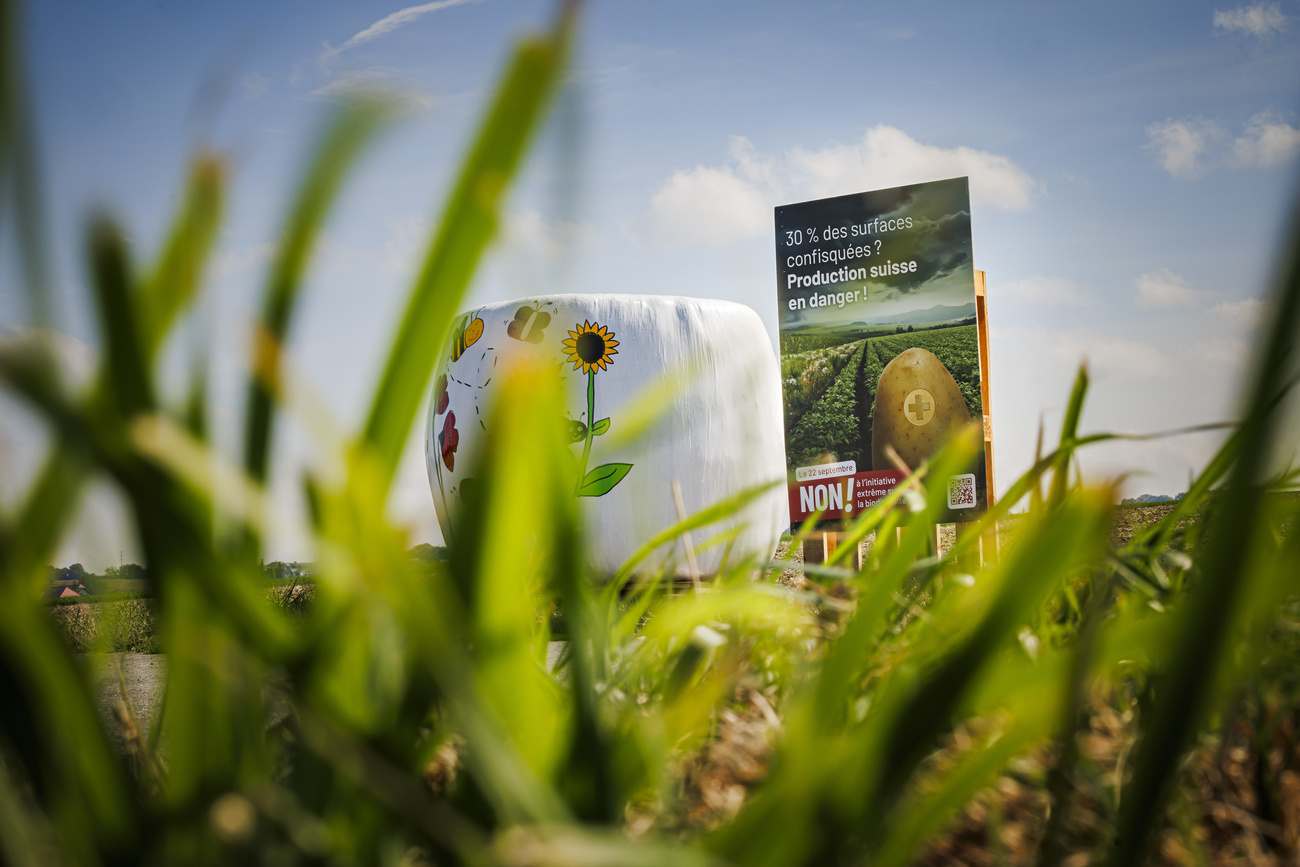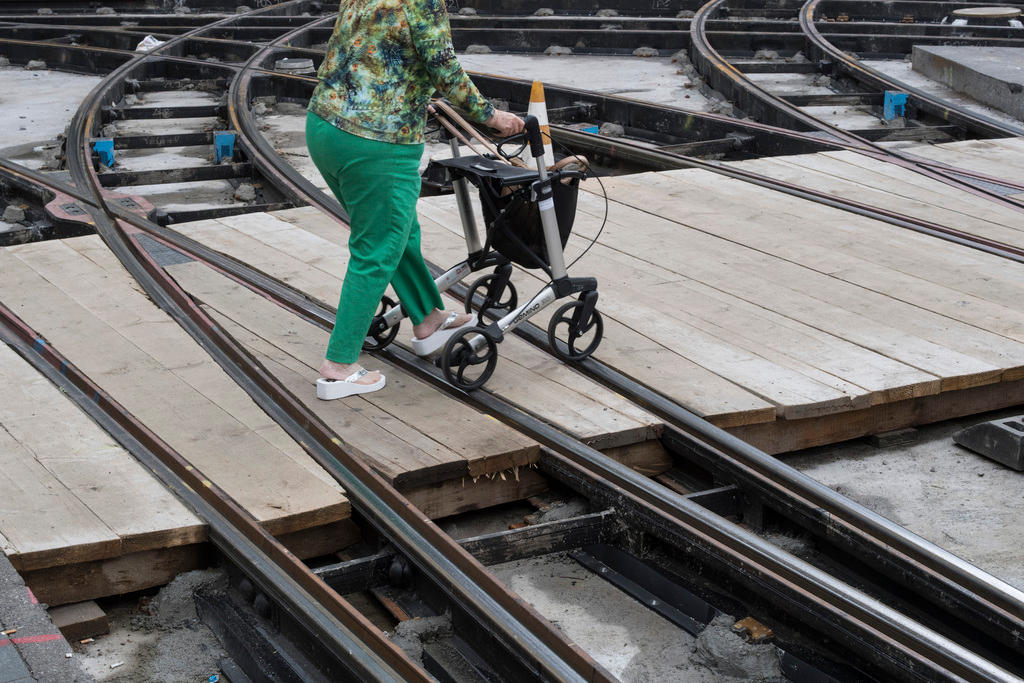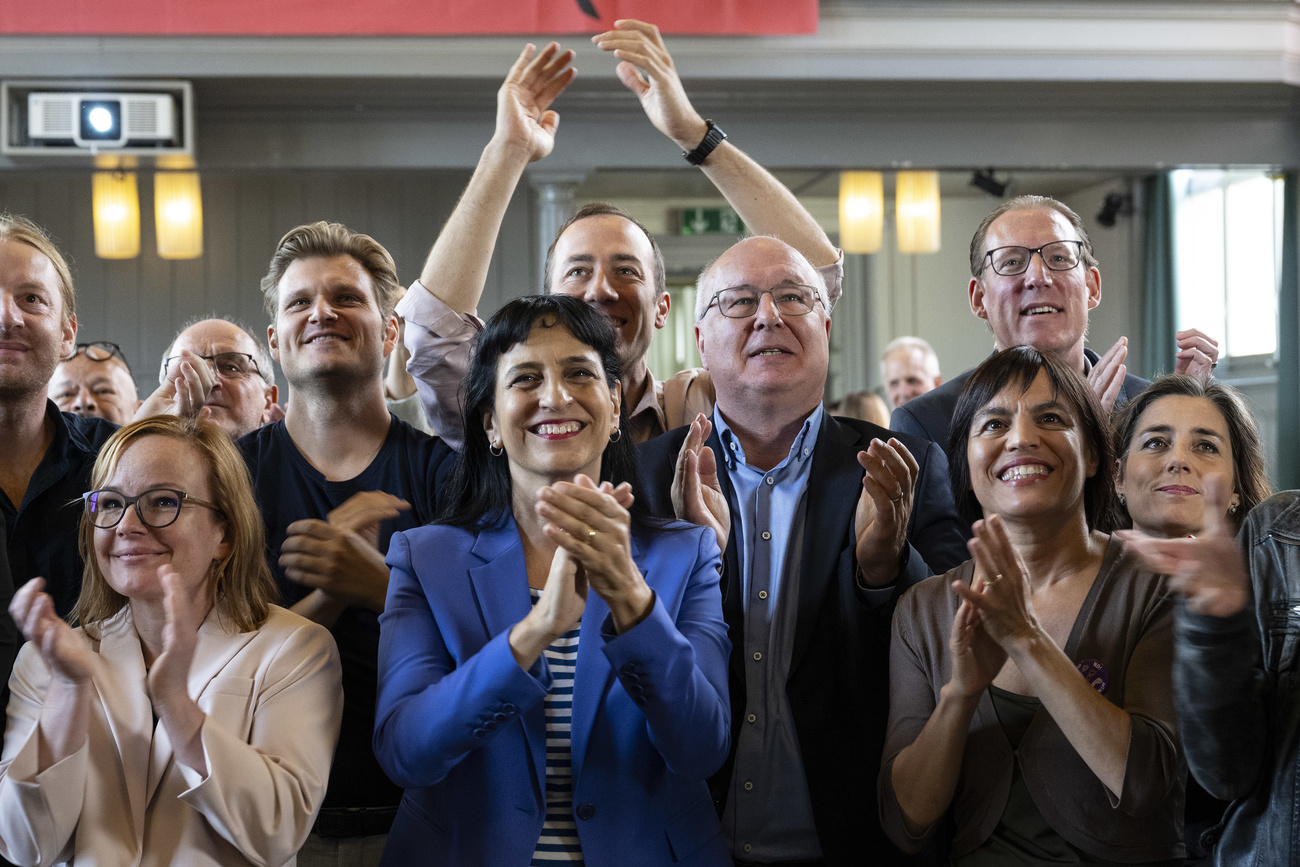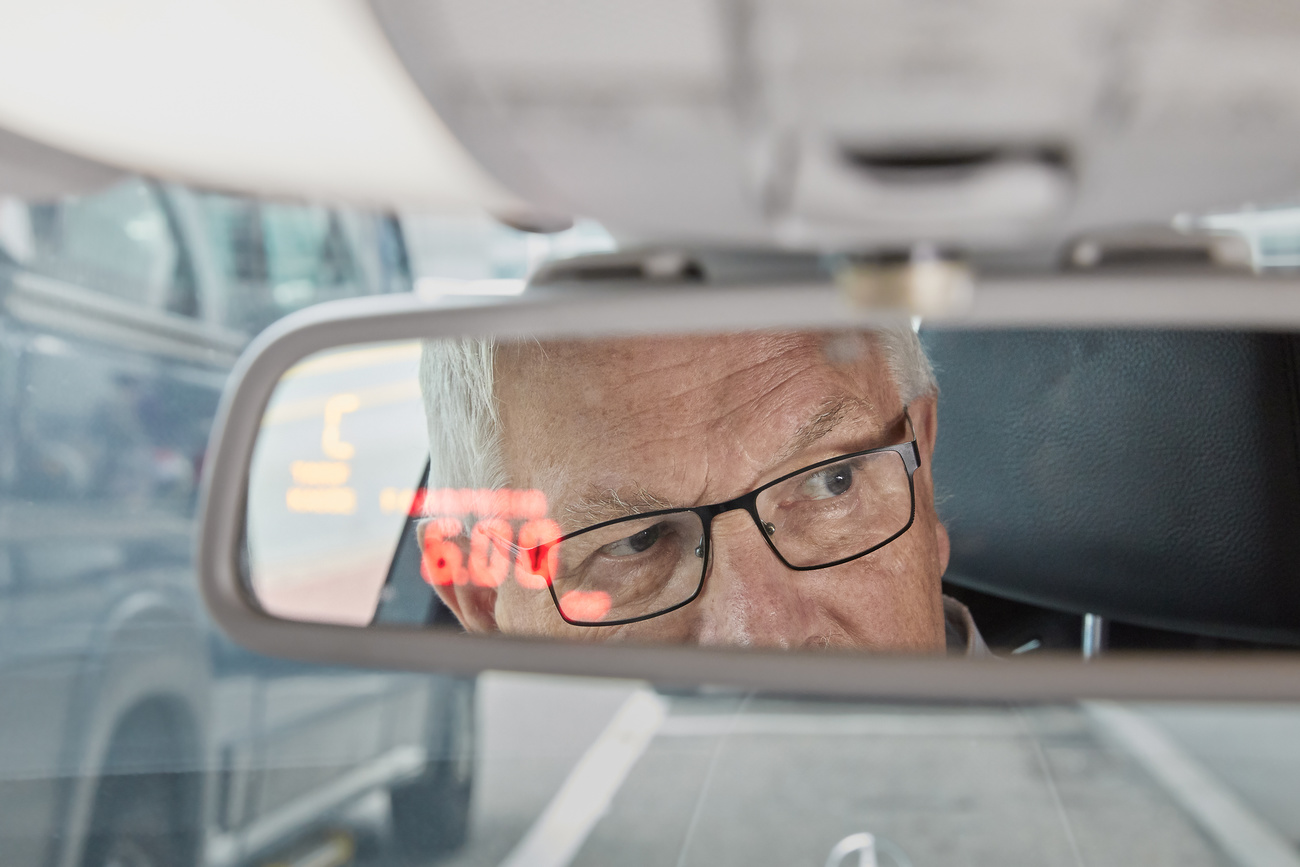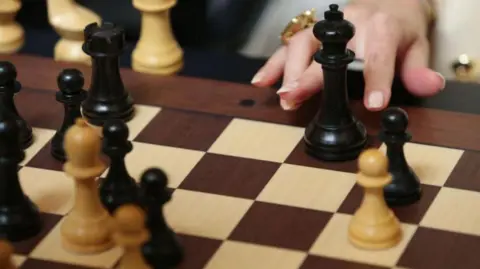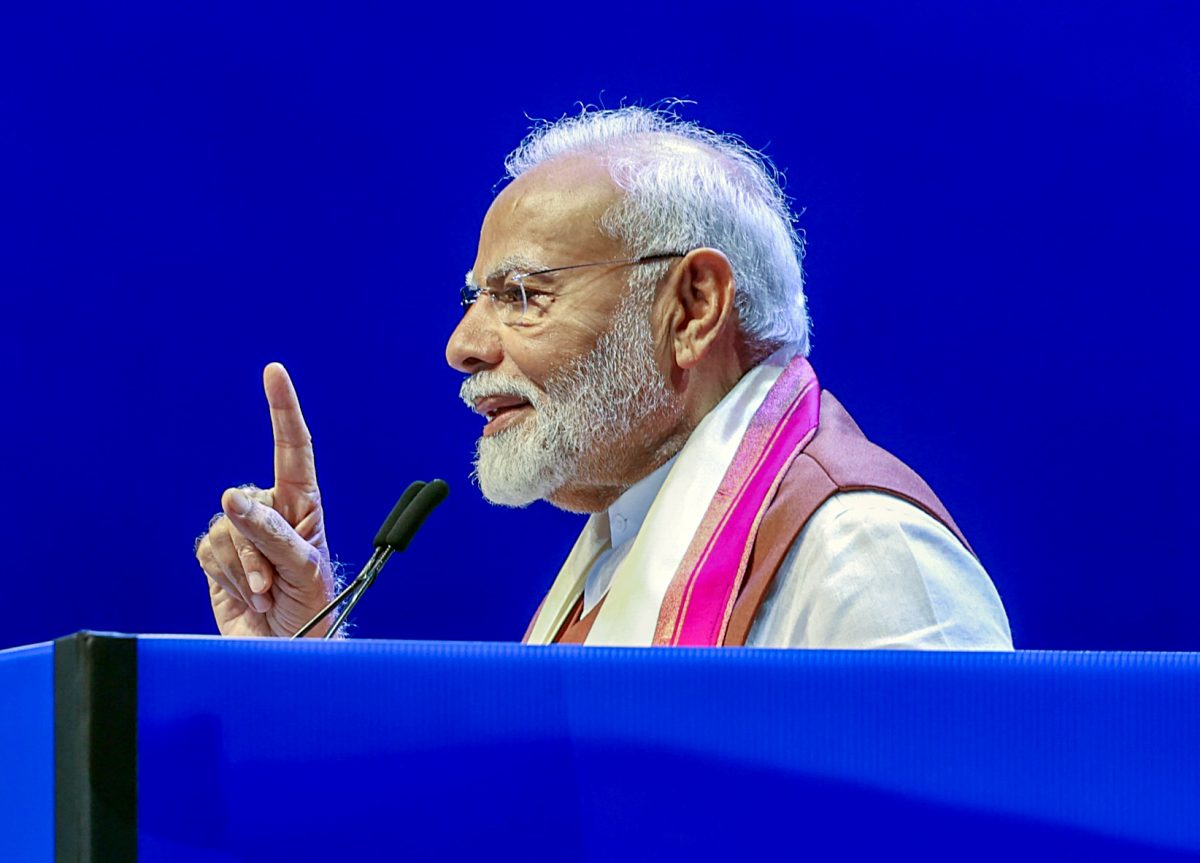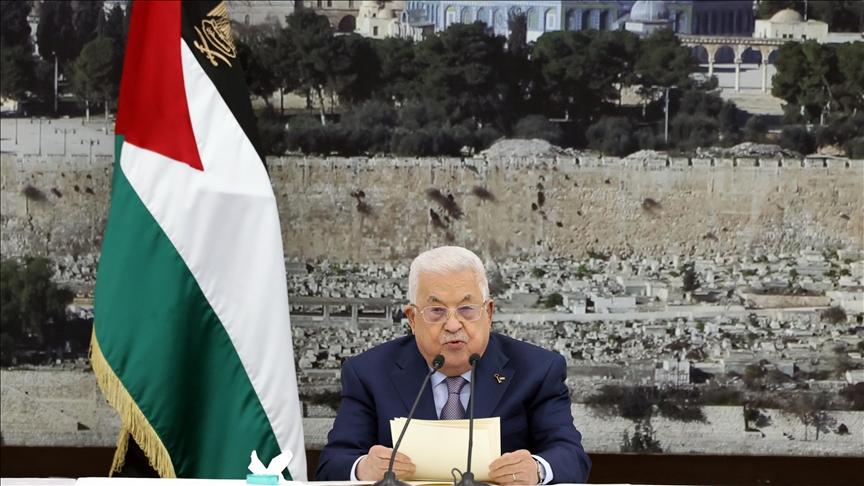Colombo

Photograph:(X)
Story highlights
According to the commission's website, 55-year-old Dissanayake secured 42.31% of the votes in the election held on Saturday.
Sri Lanka's election commission said on Sunday (September 22) that Marxist leader Anura Kumara Dissanayake won the presidential election, and will replace the current president, Ranil Wickremesinghe.
According to the commission's website, 55-year-old is set to be sworn in on Monday.
This election marks the first following the country's economic crisis in 2022. With no prior political experience, Dissanayake led the polls from the outset, surpassing both incumbent President Ranil Wickremesinghe and opposition leader Sajith Premadasa. He received 5.6 million votes, making 42.3 per cent, a notable increase from the mere 3 per cent he achieved in the 2019 presidential election.
"The dream we have nurtured for centuries is finally coming true. This achievement is not the result of any single person’s work, but the collective effort of hundreds of thousands of you. Your commitment has brought us this far, and for that, I am deeply grateful. This victory belongs to all of us," Dissanayake wrote on X.
"The millions of eyes filled with hope and expectation push us forward, and together, we stand ready to rewrite Sri Lankan history," he added.
This election was also significant as it was the first in Sri Lanka's history to require a second round of counting, as neither of the leading candidates managed to secure the necessary 50 per cent of the votes to be declared the winner.
(With inputs from agencies)
The 56-year-old leader of Janatha Vimukthi Peramuna termed his win a 'new renaissance'
Web Desk Updated: September 22, 2024
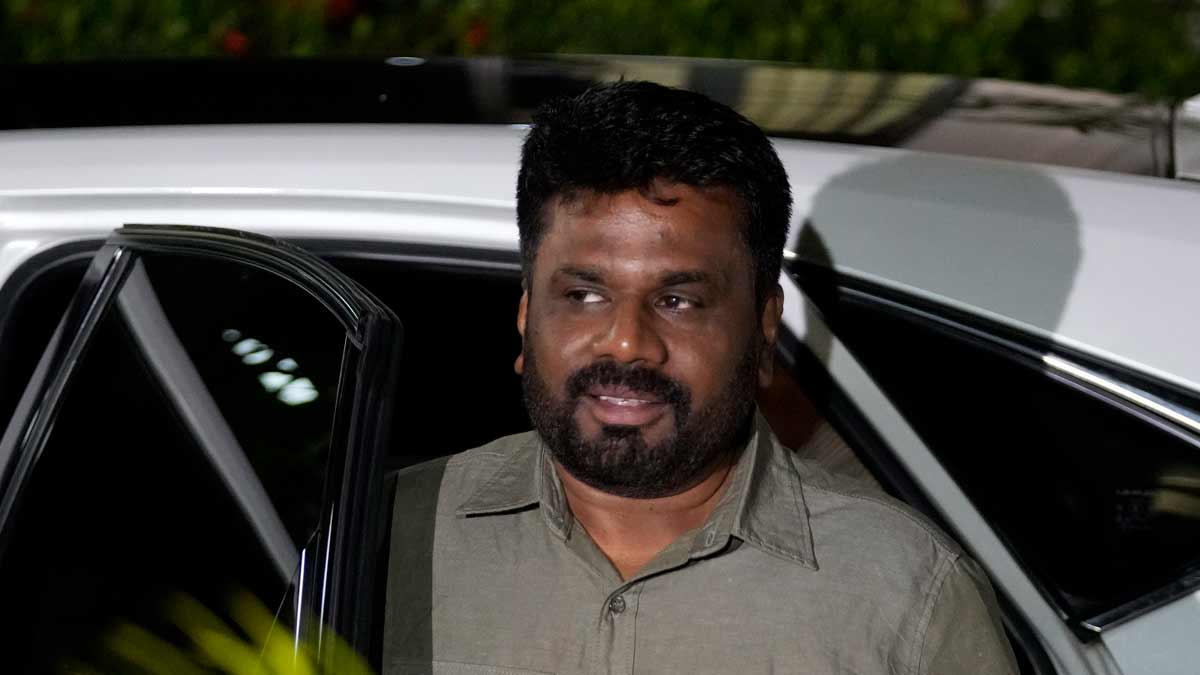 M
MMarxist leader Anura Kumara Dissanayake has been elected the ninth President of Sri Lanka, a historic verdict that saw discontent voters rise up against the unprecedented financial crisis that gripped the nation in 2022.
Anura, the leader of the Marxist Janatha Vimukthi Peramuna party's broader front National People's Power (NPP), will take oath on Monday.
The 56-year-old leader, popularly known as AKD, won more than 5.63 million votes, taking his 50-year-old party Janatha Vimukthi Peramuna (JVP) from the fringes to the helm. Anura defeated his closest rival Sajith Premadasa of Samagi Jana Balawegaya (SJB) and sitting President Ranil Wickremesinghe in an election that progressed to the second round of counting.
The polls, the first to be held since the rebellion that unseated Gotabaya Rajapaksa in 2022, witnessed two rounds of counting after no candidate secured over 50 per cent votes needed to be declared the winner. In the first round of counting, Anura topped the chart by securing 5.63 million votes or 42.31 per cent, followed by Sajith Premadasa with 4.36 million votes or 32.8 per cent. Wickremesinghe managed to get only 2.29 million votes or 17.27 per cent of the total votes polled.
This is the first time that the voting progressed to the second round of counting, as single candidates have always emerged as clear winners based on first-preference votes.
Anura, who does not possess political lineage like his rivals, projected himself as the candidate of change and vowed to dissolve parliament within 45 days of taking office for a fresh mandate for his policies in general elections.
In an earlier interview with THE WEEK, Anura had highlighted how crucial this elections was as it offered an opportunity to reshape the economic, social and political path of Sri Lanka. He had also promised to root out corruption, stating how economic decisions in Sri Lanka were often driven by bribes received by those in power. "Furthermore, fraud and corruption have become significant barriers for investors, entrepreneurs and industrialists, as the success of a project is often determined by the amount of money a minister receives. To rebuild our country, eliminating fraud and corruption is essential," he added.
Also read: 'Presidential poll is an opportunity to reshape Sri Lanka': Anura Kumara Dissanayake
A dream
The new President took to X to thank Sri Lankans, calling the win a collective effort of the people. "The dream we have nurtured for centuries is finally coming true. This achievement is not the result of any single person’s work, but the collective effort of hundreds of thousands of you. Your commitment has brought us this far, and for that, I am deeply grateful. This victory belongs to all of us."
He also remembered the sacrifices made by people for the cause, stating they will not be forgotten. "We hold the scepter of their hopes and struggles, knowing the responsibility it carries. The millions of eyes filled with hope and expectation push us forward, and together, we stand ready to rewrite Sri Lankan history. This dream can only be realised with a fresh start. The unity of Sinhalese, Tamils, Muslims, and all Sri Lankans is the bedrock of this new beginning. The New Renaissance we seek will rise from this shared strength and vision," he added.
A science graduate from Colombo suburban Kelaniya University, Anura hails from rural Thambuttegama in the North Central province. He began his political journey with the JVP in 1987 at the height of their anti-Indian rebellion.
The JVP was forefront of agitating against the Rajiv Gandhi-J R Jayawardena pact, which the party tagged a betrayal of Sri Lanka's sovereignty. However, he has since billed India as a strategic partner, adding that Sri Lanka will not allow its sea, land and airspace to threaten India or regional stability.
Sri Lankans elect Marxist-leaning Dissanayake as president to fix economy
- Dissanayake wins run-off after second round of counting
- First election since Sri Lanka's 2022 economic crisis
- Dissanayake polls 42.3 percent of counted votes
- Opposition leader Premadasa gets 32.8 percent
Sri Lankans elected Marxist-leaning Anura Kumara Dissanayake as the new president on Sunday, putting faith in his pledge to fight corruption and bolster a fragile economic recovery following the South Asian nation's worst financial crisis in decades.
Dissanayake, 55, who does not possess political lineage like some of his rivals in the presidential election, led from start to finish during the counting of votes, knocking out incumbent President Ranil Wickremesinghe and opposition leader Sajith Premadasa.
"We believe that we can turn this country around, we can build a stable government... and move forward. For me this is not a position, it is a responsibility," Dissanayake told reporters after his victory which was confirmed after a second tally of votes.
The election was a referendum on Wickremesinghe, who led the heavily indebted nation's fragile economic recovery from an economic meltdown but the austerity measures that were key to this recovery angered voters. He finished third with 17 percent of the votes.
"Mr President, here I handover to you with much love, the dear child called Sri Lanka, whom we both love very dearly," Wickremesinghe, 75, said in a statement conceding defeat.
Dissanayake polled 5.6 million or 42.3 percent of the votes, a massive boost to the three percent he managed in the last presidential election in 2019. Premadasa was second at 32.8 percent.
It was the first time in the Indian Ocean island's history that the presidential race was decided by a second tally of votes after the top two candidates failed to win the mandatory 50 percent of votes to be declared winner.
Under the electoral system, voters cast three preferential votes for their chosen candidates. If no candidate wins 50 percent in the first count, a second tally determines the winner between the top two candidates, using the preferential votes cast.
About 75 percent of the 17 million eligible voters cast their ballots, according to the election commission.
This was the country's first election since its economy buckled in 2022 under a severe foreign exchange shortage, leaving it unable to pay for imports of essentials including fuel, medicine and cooking gas. Protests forced then-President Gotabaya Rajapaksa to flee and later resign.
Dissanayake presented himself as the candidate of change for those reeling under austerity measures linked to a $2.9 billion International Monetary Fund bailout, promising to dissolve parliament within 45 days of taking office for a fresh mandate for his policies in general elections.
"The election result clearly shows the uprising that we witnessed in 2022 is not over," said Pradeep Peiris, a political scientist at the University of Colombo.
"People have voted in line with those aspirations to have different political practices and political institutions. AKD (as Dissanayake is popularly known) reflects these aspirations and people have rallied around him."
Dissanayake has worried investors with a manifesto pledging to slash taxes, which could impact IMF fiscal targets, and a $25 billion debt rework. But during campaigning, he took a more conciliatory approach, saying all changes would be undertaken in consultation with the IMF and that he was committed to ensuring repayment of debt.
Grinding poverty for millions
Buttressed by the IMF deal, Sri Lanka's economy has managed a tentative recovery. It is expected to grow this year for the first time in three years and inflation has moderated to 0.5 percent from a crisis peak of 70 percent.
But the continued high cost of living was a critical issue for many voters as millions remain mired in poverty and many pinned hopes of a better future on the next leader.
Dissanayake ran as a candidate for the National People's Power alliance, which includes his Marxist-leaning Janatha Vimukthi Peremuna party.
Although JVP has just three seats in parliament, Dissanayake's promises of tough anti-corruption measures and more policies to support the poor boosted his popularity.
He will have to ensure Sri Lanka sticks with the IMF programme until 2027 to get its economy on a stable growth path, reassure markets, repay debt, attract investors and help a quarter of its people out of poverty.
"Root cause for the downfall of this country is bad management. We have a strong feeling if we have a good manager to rule this country... we can be successful in future," said Janak Dias, 55, a real estate businessmen.
- Reuters
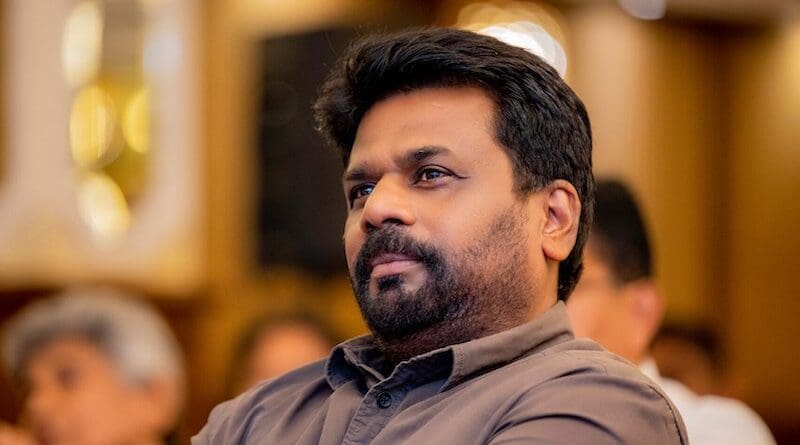
New Sri Lanka President – Anura Kumara Dissanayake: Charting A Vision For Overcoming Economic Resilience And Gender Disparities – OpEd
Anura Kumara Dissanayake was elected as new president of Sri Lanka on 22 September 2024, signifying a notable transformation in the country’s political landscape. His triumph is regarded as a definitive “vote for change,” signifying the electorate’s aspiration for new leadership in the aftermath of the profound economic crisis that afflicted the nation in 2022. Dissanayake, a candidate with leftist and Marxist inclinations, secured 5.6 million votes, representing 42.3% of the total, a significant rise from the 3% he obtained in the 2019 presidential election.
In contrast, incumbent President Ranil Wickremesinghe, who contributed to economic stabilization following the crisis, secured third place with merely 17% of the vote. His re-election campaign was impeded by the austerity measures enacted during his administration, which, although essential for recovery, failed to resonate positively with the electorate. Opposition leader Sajith Premadasa also did not obtain a sufficiently robust vote, highlighting the electorate’s transition towards Dissanayake’s reformative pledges. This election represented a historical precedent, necessitating a second round of counting due to neither of the leading candidates securing the requisite 50% majority initially.
Dissanayake’s campaign concentrated on eradicating corruption and revitalizing the economy, resonating with citizens desiring accountability and reform in governance. In his victory speech, Dissanayake underscored the collaborative endeavor that facilitated his triumph, crediting his success to the backing of numerous voters. He articulated optimism and resolve to collaboratively reshape Sri Lankan history with the people, signifying a dedication to cultivating a government that prioritizes the needs and aspirations of every citizen.
2024 Election Manifesto
In the 2024 election in Sri Lanka, the presidential candidates’ manifestos tackle gender issues with differing degrees of emphasis. Ranil Wickremesinghe emphasizes social welfare and inclusivity, concentrating on improving programs for marginalized communities, although he does not propose specific gender-targeted initiatives. His dedication to enhancing healthcare implicitly encompasses women’s health, especially maternal care. Sajith Premadasa, conversely, emphasizes the empowerment of marginalized communities, explicitly championing gender equality. His manifesto encompasses educational and healthcare reforms targeting women-led households and marginalized communities, in addition to social protection initiatives intended to mitigate poverty. Anura Kumara Dissanayake advocates for labor rights and equitable remuneration, especially for women and individuals with disabilities, while also incorporating welfare programs for families led by women. Wickremesinghe’s approach is more general, whereas Premadasa’s is distinguished by its explicit emphasis on gender equality, with Dissanayake also tackling gender issues via labor rights and social protection.
In the 2024 presidential election in Sri Lanka, candidates articulated divergent visions for the nation’s future, emphasizing economic revitalization, stability, and social welfare. Incumbent president Ranil Wickremesinghe underscores economic stability and growth as essential for recovery, advocating fiscal reforms to diminish the budget deficit and regulate public debt. His strategy seeks to draw foreign investment by establishing a conducive business climate and improving the ease of conducting business, demonstrating a pragmatic response to the country’s economic difficulties following the crisis.
Sajith Premadasa, head of the Samagi Jana Sandhanaya (SJS), presents a comprehensive vision named “A Win for All,” promoting a social market economy that harmonizes free-market efficiency with social equity. His manifesto delineates five fundamental pillars: constructing a robust economy, empowering citizens, augmenting government services, preserving quality of life, and ensuring national security. Premadasa’s initiatives emphasize transparency, accountability, and the elimination of corruption, advocating for reforms in debt management, monetary policy, and revenue generation, while also modernizing agriculture and advancing a green economy.
Anura Kumara Dissanayake of the National People’s Power (NPP) advocates for a production-oriented economy that leverages the nation’s natural resources, such as minerals and tourism. His manifesto underscores digital transformation and a democratic economy, prioritizing food security and sustainable resource management. Dissanayake intends to enhance infrastructure, modernize the energy sector through renewable sources, and improve public transportation, with the objective of fostering an inclusive economic environment that prioritizes local industries.
In summary, Wickremesinghe’s strategy is pragmatic and centered on fiscal stability, whereas Premadasa advocates for social justice integrated with economic growth. Dissanayake underscores the importance of resource management and sustainability, promoting a production-oriented economy that serves the interests of all citizens. The vision of each candidate demonstrates their comprehension of the complexities confronting Sri Lanka and the varied needs of its population in the post-crisis context.
Sri Lankan Economic Crisis
Anura Kumara Dissanayake is expected to encounter considerable economic challanges upon assuming the presidency of Sri Lanka, especially following the nation’s deep financial crisis. In 2022, Sri Lanka’s GDP diminished by 7.8%, while inflation reached a zenith of 69.8% in September (World Bank, 2023). The country defaulted on its $51 billion debt, initiating negotiations with the International Monetary Fund (IMF) for a bailout package. The IMF anticipates a gradual recovery, predicting a GDP growth of 1.5% in 2024 (IMF, 2023).
A significant challenge is the high unemployment rate, especially among youth, which was approximately 20.2% in 2023, substantially surpassing the national average of about 5.4% (Department of Census and Statistics, Sri Lanka, 2023). This is exacerbated by a skills gap, as numerous graduates lack the necessary competencies for the job market. The Asian Development Bank (2022) emphasizes the significance of fostering entrepreneurship via financial access and training to mitigate youth unemployment. Infrastructure development is essential for economic recovery. In 2022, Sri Lanka’s infrastructure expenditure constituted approximately 3.5% of GDP, falling short of the requisite level to facilitate sustainable growth (Asian Development Bank, 2023). The energy sector has encountered considerable difficulties, including recurrent power shortages attributable to antiquated infrastructure. The World Bank (2023) underscores the necessity for a $12 billion investment in infrastructure over the forthcoming decade to satisfy growth requirements.
Gender inequality in Sri Lanka is a multifaceted issue impacting women’s lives, encompassing sex-selective abortions, education, and employment opportunities. Although Sri Lanka is highly ranked on gender equality indices, it holds a lower position globally. The systematic devaluation of females results in restricted access to healthcare, education, and advanced employment opportunities, compounded by diminished political engagement and reduced social rights, as observed by Dr. Elaine Enarson (2015). The entrenched patriarchal social structure in Sri Lanka significantly perpetuates gender inequality, limiting women’s roles and opportunities in both public and private domains. Patriarchy, defined by male supremacy and cultural conventions that prioritize men, establishes obstacles for women in multiple domains. Although there has been incremental advancement in gender equality, conventional gender roles persist in obstructing women’s complete engagement in the economy and governance.
The Global Gender Gap Report 2023 positions Sri Lanka at 108th among 146 nations, highlighting ongoing inequalities in economic participation and opportunities (World Economic Forum, 2023). Women constitute approximately 50% of the workforce yet frequently occupy low-paying, informal positions, encountering systemic obstacles to career progression and economic stability (Department of Census and Statistics, 2022). Experts Matt Withers and Janaka Biyanwila emphasize that Sri Lanka’s labor market is significantly segmented, restricting sustainable economic prospects for women, especially in agriculture and plantation sectors, where female workers frequently earn lower wages and encounter discrimination (Withers & Biyanwila, 2023).
Marriage perpetuates patriarchal norms, imposing societal expectations that compel women to prioritize familial obligations over professional aspirations. A 2022 survey revealed that more than 70% of women felt obligated to prioritize family responsibilities (Sri Lanka Gender Equality Survey, 2022). The absence of supportive work-life balance policies, including parental leave and affordable childcare, intensifies these challenges, as the International Labour Organization observes minimal advancement in family-friendly workplace policies in Sri Lanka (ILO, 2023).
Intersectionality complicates these matters, as women from marginalized communities, including ethnic minorities and those in rural areas, encounter further obstacles to education and employment. A study conducted by the Asian Development Bank indicated that women in rural Sri Lanka possess markedly reduced access to vocational training programs, thereby constraining their employability and economic autonomy (Asian Development Bank, 2021). To advance gender equality, Sri Lanka must confront these ingrained patriarchal norms. Efforts must concentrate on augmenting women’s economic involvement via specific policies that facilitate access to education, vocational training, and equitable labor rights, while simultaneously addressing societal perceptions of gender roles to enable women to fully engage in the economy and society.
Vision for New President
To effectively address the economic challenges and gender disparities in Sri Lanka, President Anura Kumara Dissanayake needs to implement several strategic initiatives. Initially, comprehensive fiscal reforms are essential for economic stabilization, focusing on decreasing the budget deficit and managing public debt through increased revenue and enhanced governmental efficiency. Encouraging foreign investment is crucial, particularly in industries such as tourism, renewable energy, and technology. However, internal solutions/strategies are more important than the external. Additionally, targeted employment initiatives for youth, including vocational training and apprenticeship programs, can reduce high unemployment rates. Enabling access to financing, mentorship, and training for small and medium enterprises (SMEs) is crucial for economic diversification and employment generation. Dissanayake should develop specific policies to promote gender equality in the workplace, encompassing the implementation of equal pay, anti-discrimination laws, and gender-sensitive hiring practices. Enhancing access to quality education and vocational training for women, particularly in marginalized communities, is imperative. Implementing family-centric workplace policies, such as parental leave and accessible childcare services, will aid women in balancing professional and familial responsibilities.
Public awareness campaigns are crucial for addressing and altering societal perceptions of gender roles. Furthermore, executing initiatives designed to economically empower women, including microfinance programs and support for women-owned businesses, can significantly enhance their participation in the economy. Ultimately, advocating for women’s political participation through quotas and leadership development will ensure their representation in governance. By integrating these recommendations into his administration’s agenda, President Dissanayake can promote a more inclusive and sustainable future for Sri Lanka.
At last, Dissanayake’s presidency may take a strategic approach to traverse the economic landscape, emphasizing post-crisis recovery, job creation, and infrastructure development. Through the implementation of targeted policies informed by data-driven insights and international collaboration, his administration can strive to establish a stable and prosperous Sri Lanka.
Sri Lanka's Anura Kumara Dissanayake. Photo Credit: Bunty456, Wikimedia Commons
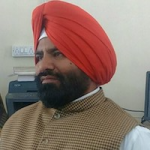
Curfew lifted, change arrives: A firsthand view of Sri Lanka’s historic election

But a change of presidency won’t bring a quick fix to Sri Lanka’s debt woes
It’s a slightly scary feeling when the hotel manager calls you in your room and tells you that the police have put the whole country into curfew, and you cannot go outside. But perhaps that’s my fault for travelling to Sri Lanka during a presidential election.
This is a country that has been in crisis mode for some time.
But my perspective here on the ground, (the curfew was lifted at midday Sunday), was that the election vibe on the streets has been nothing but peaceful, something echoed by the electoral commission. The locals I have met have made it clear they were wanting systemic change for the country. And this was a particular message shared by my driver on the three-hour drive from Colombo to Kandy.
AKD hit a chord with younger voters who were excited to vote for their new president after being part of the movement to force the unpopular Rajapaksa from office in 2022.
This is the first election since the mass protests of 2022 that ousted the country’s leader Gotabaya Rajapaksa and saw the worst economic crisis hit under his leadership. That anger for the decade long rule of the Rajapaksa family runs deep. He is seen as the cause of the crisis blamed for mismanagement and corruption. Straight after he fled the country, Ranil Wickremesinghe was appointed and oversaw the difficult reforms to avoid bankruptcy. He took loans from the International Monetary Fund, and countries including China, India and the Arab nations. All of this has added to Sri Lanka’s economic woes as it now sits on a massive debt burden.
And despite Wickremesinghe claiming he was the only candidate in this election that could lead Sri Lanka to economic recovery, he was only able to secure 17% of the vote, making him third in the race. There have been 38 candidates in this presidential election, none of them women. But it has really been a three-horse race between left-leaning politician Anura Kumara Dissanayake, Opposition leader Sajith Premadasa, and incumbent Ranil Wickremesinghe.
Sri Lanka has continued to suffer two past years of negative growth. Yet inflation has come down since its 2022 peak. But wages remain low, taxes high, and the poverty rate has doubled according to the World Bank. This is a nation frustrated and crying out for a brighter future.
The mood for change was also about the fact that people were wanting to send a message that the damage that they blame Rajapaksa has left on the country must be addressed and that he must be held to account for it.

That is just one of the platforms that the newly elected Sri Lankan president Anura Kumara Dissanayake (or AKD) has stood for – good governance and ending fraud, corruption and waste.
His grassroots campaign also included reforming the enlarged parliament and increasing economic development. The resulted in him securing 42.31% of the vote, which gave him the majority to win, after a second round of voting, the first time that had occurred in Sri Lanka’s history.
AKD’s platform has created waves across the country turning voter disillusionment into a sign of hope for the nation’s future. It has particularly hit a chord with younger voters who were excited to vote for their new president after being part of the movement to force the unpopular Rajapaksa from office in 2022 and flee the country.
Pramadasse who came a close second also campaigned against “those who robbed the country”, which also hit a chord especially with those in rural communities.
My driver to Kandy was angry that Sr Lanka was not progressing economically and the government was instead bringing in “unnecessary imports such as fuel, and fish from the Maldives and eggs from India, when we have fish and sun and soil here”. He felt the country had gone back at least a decade. He shared how he had slept outside the fuel station during the 2022 crisis waiting days for fuel, along with other shortages of goods and power blackouts.
But a change of presidency won’t bring a quick fix to Sri Lanka’s debt woes. The IMF loan has strict conditions that have created harsh realities for Sri Lankans. My driver knows that “magic won’t happen overnight” but with a change of leader who has campaigned against the mismanagement and corruption, he, like many, are hoping that Sri Lanka’s future under Dissanayake will be a little brighter than it was yesterday. I hope they are right.
Marxist Leader Dissanayake Says 'Victory Belongs To All' Following Win In Sri Lanka Presidential Polls
Anura Kumara Dissanayake, leader of the National People’s Power (NPP) party, has been elected as Sri Lanka's new president, securing 42.3% of the vote.
Outlook Web Desk
Updated on: 22 September 2024
Anura Kumara Dissanayake will be sworn in on Monday. Photo: X
Sri Lanka has chosen Anura Kumara Dissanayake, leader of the Marxist-leaning National People’s Power (NPP) party, as its 10th president. The 55-year-old won the presidential race on Sunday, defeating incumbent President Ranil Wickremesinghe and opposition leader Sajith Premadasa. Dissanayake, who campaigned on a platform of fighting corruption and restoring the economy, is set to be sworn in on Monday.
Dissanayake’s victory marks a turning point for Sri Lanka, which is still recovering from its worst financial crisis in decades. He secured 42.3% of the vote, around 5.6 million votes, a huge improvement from the 3% he managed in the 2019 presidential election. His closest rival, Premadasa, finished second with 32.8%, while Wickremesinghe, who oversaw the country’s economic recovery efforts, garnered just 17%. This election was also unique in that it required a second round of counting, a first in Sri Lankan history, as no candidate managed to secure over 50% of the vote in the initial count.
Following his win, Dissanayake took to X (formerly Twitter) to address the nation, calling for unity and expressing gratitude to the people who supported him. In his message, he said: "The dream we have nurtured for centuries is finally coming true. This achievement is not the result of any single person’s work, but the collective effort of hundreds of thousands of you. Your commitment has brought us this far, and for that, I am deeply grateful. This victory belongs to all of us."
He added: "Our journey here has been paved by the sacrifices of so many who gave their sweat, tears, and even their lives for this cause. Their sacrifices are not forgotten. We hold the scepter of their hopes and struggles, knowing the responsibility it carries. The millions of eyes filled with hope and expectation push us forward, and together, we stand ready to rewrite Sri Lankan history."

Sri Lanka Elections 2024: Presidential Poll Goes To Historic 2nd Count After No Candidate Crosses 50% Mark
While Dissanayake’s win brings hope to many, he faces the daunting task of stabilising an economy that has been struggling since the 2022 financial meltdown. Sri Lanka’s economic crisis, marked by food shortages, fuel scarcities, and soaring inflation, led the previous government to seek a $2.9 billion bailout from the International Monetary Fund (IMF). The bailout package, although necessary to avert further collapse, has been deeply unpopular due to the austerity measures it brought, such as tax hikes and cuts to public services.
Dissanayake’s NPP party has promised not to scrap the IMF deal but to renegotiate its terms.
The NPP party, which has its roots in Marxism, was once marginalised after leading two failed uprisings in the 1970s and 1980s that resulted in over 80,000 deaths. However, this election marks a resurgence for the party. The significant voter turnout—around 75% of Sri Lanka’s 17 million eligible voters participated in the election—reflects the desire for change among the population.
Outgoing President Wickremesinghe, who struggled to overcome public anger over his economic policies, gracefully accepted defeat and congratulated his successor. "With much love and respect for this beloved nation, I hand over its future to the new President," Wickremesinghe said in a statement.

By —Krishan Francis, Associated Press
By —Sheikh Saaliq, Associated Press
By —Bharatha Mallawarachi, Associated Press
COLOMBO, Sri Lanka (AP) — Marxist lawmaker Anura Kumara Dissanayake won Sri Lanka’s presidential election, the Election Commission announced Sunday, after voters rejected the old political guard that has been widely accused of pushing the South Asian nation toward economic ruin.
Dissanayake, whose pro-working class and anti-political elite campaigning made him popular among youth, secured victory over opposition leader Sajith Premadasa and incumbent liberal President Ranil Wickremesinghe, who took over the country two years ago after its economy hit bottom.
WATCH: Sri Lanka struggles to recover a year after economic and political collapse
Dissanayake received 5,740,179 votes, followed by Premadasa with 4,530,902, Election Commission data showed.
The election held Saturday was crucial as the country seeks to recover from the worst economic crisis in its history and the resulting political upheaval.
“This achievement is not the result of any single person’s work, but the collective effort of hundreds of thousands of you. Your commitment has brought us this far, and for that, I am deeply grateful. This victory belongs to all of us,” Dissanayake said in a post on X.
Outgoing President Wickremesinghe in a video statement congratulated Dissanayake and said he hoped he will carry forward the economic recovery efforts successfully. The election was a virtual referendum on Wickremesinghe’s leadership, including restructuring Sri Lanka’s debt under an International Monetary Fund bailout after it defaulted in 2022.
Dissanayake, 55, had said he would renegotiate the IMF deal to make austerity measures more bearable. Wickremesinghe had warned that any move to alter the basics of the agreement could delay the release of a fourth tranche of nearly $3 billion that is crucial to maintaining stability.
“I successfully completed the responsibility that history put on my shoulders. I was able to rescue my motherland from bankruptcy within short period pf two years,” Wickremesinghe said.
Under Wickremesinghe, inflation has dropped and foreign reserves and the local currency have strengthened. A 2 percent economic growth is predicted this year after a 7 percent contraction in 2022. But Sri Lankans are still struggling with high taxes and living costs.
“Throughout our lives, we have undergone a lot of hardships and our children are also suffering now. We need to bring an end to this misery,” said Ranuka Priyanthi, 58-year-old who voted for Dissanayake. She said she expects him to rebuild the country that has been ruined by economic mismanagement and corruption.
Dissanayake’s immediate challenge would be to steady the economy “in the face of anxieties felt by business and financial groups about his Marxist and revolutionary background,” said political analyst Jehan Perera.
He said Dissanayake represented the spirit of the 2022 uprising during which angry Sri Lankans ousted then-President Gotabaya Rajapaksa and called for a “system change” and “new faces in politics.”
It was a strong showing for Dissanayake, who won just over 3 percent of votes in a previous presidential election in 2019.
His National People’s Power coalition is led by the Janatha Vimukthi Peramuna, or People’s Liberation Front, a Marxist party that waged two unsuccessful armed insurrections in 1970s and 1980s to capture power through socialist revolution. After its defeat, the JVP entered democratic politics in 1994 and mostly played a key role in the opposition. However, they have supported several presidents and been part of governments briefly.
The NPP grouping also includes academics, civil society movements, artists, lawyers and students.
Dissanayake was first elected to Parliament in 2000 and briefly held the portfolio of agriculture and irrigation minister under then-President Chandrika Kumaratunga. He ran for president for the first time in 2019 and lost to Rajapaksa, who was ousted over the economic crisis two years later.
The government announced Thursday that it passed the final hurdle in debt restructuring by reaching an agreement in principle with private bond holders. At the time of its default, Sri Lanka’s local and foreign debt totaled $83 billion. The government says it has now restructured more than $17 billion.
The crisis resulted largely from excessive borrowing on projects that did not generate revenue. The impact of the COVID-19 pandemic and the government’s insistence on using scarce foreign reserves to prop up the currency, the rupee, contributed to the economy’s free fall.

By Krishan Francis and Shiekh Saaliq - Associated Press - Sunday, September 22, 2024
COLOMBO, Sri Lanka — Marxist lawmaker Anura Kumara Dissanayake on Sunday claimed he had won Sri Lanka’s presidential election.
“This victory belongs to all of us,” Dissanayake said in a post on X.
Official results were expected to be announced, but according to tallies released by the Election Commission, Dissanayake secured 42% of the votes followed by opposition leader Sajith Premadasa with 32%. Incumbent liberal President Ranil Wickremesinghe, who took over the country two years ago after its economy hit rock bottom, came distant a third and secured 17% of the votes.
Campaigning by Dissanayake in favor of working class and against political elite made him popular among youth as the country seeks to recover from the worst economic crisis in its history and the resulting political upheaval.
Neither candidate received more than 50% of the vote.
The Sri Lankan election system allows voters to select three candidates on their ballots in the order of their preference. If no candidate secures a majority, the top two will be retained and the ballots of the eliminated candidates will be checked for preferences given to either of the top two candidates, and those votes will be added to their respective tallies. The candidate with the highest number of votes after that will be declared the winner.
PHOTOS: Marxist lawmaker Anura Dissanayake claims victory in Sri Lanka's presidential election
It was a strong showing for Dissanayake, who won just over 3% of votes in a previous presidential election in 2019, and suggests voters are fatigued with the old political guard, which has been accused of pushing Sri Lanka toward economic instability.
Wickremesinghe’s Foreign Minister Ali Sabry congratulated Dissanayake on the social platform X and said he hopes he will “lead with a commitment to transparency, integrity, and the long-term good of the country.”
“I wish Mr. Dissanayake and his team every success in their efforts to lead Sri Lanka forward,” Sabry added.
The election was a virtual referendum on Wickremesinghe’s leadership of a fragile recovery, including restructuring Sri Lanka’s debt under an International Monetary Fund bailout program after it defaulted in 2022.
Dissanayake, 55, leads the left-leaning coalition National People’s Power, an umbrella of civil society groups, professionals, Buddhist clergy and students.
The workers and poor who overthrew the old dictatorship are rejoicing, but they must keep up their struggles to beat the IMF bankers

Anura Kumara Dissanayake won the Sri Lanka presidential election
Sunday 22 September 2024
Dissanayake is the leader of the Janatha Vimukthi Peramuna (JVP) party. It used to describe itself as Marxist but has moved steadily rightwards over decades.
Nevertheless, his party has been able to galvanise a large part of the political anger that exploded into a rebellion in 2022. A general strike combined with a street protest movement to overthrow years of dictatorship by the hated Rajapaksa family.
Mithun Jayawardana is one of the rebels famously pictured swimming in the president’s pool after he left the country in a hurry. He told BBC news this week, “We need a president who is elected by the people. The people didn’t elect the current president.”
Dissanayake fought the election on two key promises. First, to root out the endemic political corruption associated with both the Rajapaksas, and the Ranil Wickremesinghe government that followed it.
Wickremesinghe won just 17 percent of the vote to Dissanayake’s 42 percent, coming third.
Second, to renegotiate the terms of the 2023 International Monetary Fund (IMF) bailout loan. The international bankers behind the IMF had demanded an austerity plan. It hit the poor so hard that many could no longer afford basics, such as food and gas to cook it with.
Now there is a mood of celebration in the poorest neighbourhoods, so much so that the army announced a curfew on the night of the election results.
But for Dissanayake, the JVP, and its National People’s Party alliance, the real tests are still to come.
Neither Sri Lanka’s ruling class nor the IMF want the question of the country’s loan repayments reopened. And neither wants an end to the vicious austerity regime that immiserated the poor.
The JVP will soon find that bosses and bankers regard themselves as “above the law”, and that they are the “real” power behind the state.

Strikes hit Sri Lanka against new austerity drive
Read More
To make the kind of radical changes that Dissanayake talked about during the election, his party would have to call on the spirit of the rebellion of 2022.
That would mean millions of workers downing tools, and leaving offices, schools and plantations to demonstrate their power.
But any such move would be a declaration of class war—and that is something that Dissanayake is desperate to avoid.
Instead, he will likely seek conciliation, offering his government as a mediating force between the angry masses and the bankers.
Millions of workers and the poor have been made to pay a terrible price for the greed and corruption of the Sri Lankan ruling class.
And they risked everything in the battle to get rid of dictatorship.
Many of them will applaud this week’s election result, but the arrival of the Dissanayake government must not mark the end of their struggle.
Published: 22 Sep 2024 -

Sri Lanka's president-elect Anura Kumara Dissanayaka (C), gestures as he leaves the Election Commission office in Colombo on September 22, 2024, following his victory in the country's presidential election. Photo by Ishara S. Kodikara / AFP.
AFP
Colombo: Marxist lawmaker Anura Kumara Dissanayake won Sri Lanka’s presidential election, the Election Commission announced Sunday, after voters rejected the old political guard that has been widely accused of pushing the South Asian nation toward economic ruin.
Dissanayake, whose pro-working class and anti-political elite campaigning made him popular among youth, secured victory over opposition leader Sajith Premadasa and incumbent liberal President Ranil Wickremesinghe, who took over the country two years ago after its economy hit bottom.
Dissanayake received 5,740,179 votes, followed by Premadasa with 4,530,902, Election Commission data showed.
The election held on Saturday was crucial as the country seeks to recover from the worst economic crisis in its history and the resulting political upheaval.
"This achievement is not the result of any single person’s work, but the collective effort of hundreds of thousands of you. Your commitment has brought us this far, and for that, I am deeply grateful. This victory belongs to all of us,” Dissanayake said in a post on X.
Outgoing President Wickremesinghe in a video statement congratulated Dissanayake and said he hoped he will carry forward the economic recovery efforts successfully.
The election was a virtual referendum on Wickremesinghe’s leadership, including restructuring Sri Lanka’s debt under an International Monetary Fund bailout after it defaulted in 2022.
Dissanayake, 55, had said he would renegotiate the IMF deal to make austerity measures more bearable.
Wickremesinghe had warned that any move to alter the basics of the agreement could delay the release of a fourth tranche of nearly $3 billion that is crucial to maintaining stability.
"I successfully completed the responsibility that history put on my shoulders. I was able to rescue my motherland from bankruptcy within short period pf two years,” Wickremesinghe said.
Under Wickremesinghe, inflation has dropped and foreign reserves and the local currency have strengthened.
A 2% economic growth is predicted this year after a 7% contraction in 2022.
But Sri Lankans are still struggling with high taxes and living costs.
"Throughout our lives, we have undergone a lot of hardships and our children are also suffering now.
We need to bring an end to this misery,” said Ranuka Priyanthi, 58-year-old who voted for Dissanayake.
She said she expects him to rebuild the country that has been ruined by economic mismanagement and corruption.
Dissanayake’s immediate challenge would be to steady the economy "in the face of anxieties felt by business and financial groups about his Marxist and revolutionary background,” said political analyst Jehan Perera.
He said Dissanayake represented the spirit of the 2022 uprising during which angry Sri Lankans ousted then-President Gotabaya Rajapaksa and called for a "system change” and "new faces in politics.”
It was a strong showing for Dissanayake, who won just over 3% of votes in a previous presidential election in 2019.
His National People’s Power coalition is led by the Janatha Vimukthi Peramuna, or People’s Liberation Front, a Marxist party that waged two unsuccessful armed insurrections in 1970s and 1980s to capture power through socialist revolution.
After its defeat, the JVP entered democratic politics in 1994 and mostly played a key role in the opposition.
However, they have supported several presidents and been part of governments briefly.
The NPP grouping also includes academics, civil society movements, artists, lawyers and students.
Dissanayake was first elected to Parliament in 2000 and briefly held the portfolio of agriculture and irrigation minister under then-President Chandrika Kumaratunga.
He ran for president for the first time in 2019 and lost to Rajapaksa, who was ousted over the economic crisis two years later.
The government announced Thursday that it passed the final hurdle in debt restructuring by reaching an agreement in principle with private bond holders.
At the time of its default, Sri Lanka’s local and foreign debt totaled $83 billion. The government says it has now restructured more than $17 billion.
The crisis resulted largely from excessive borrowing on projects that did not generate revenue.
The impact of the COVID-19 pandemic and the government’s insistence on using scarce foreign reserves to prop up the currency, the rupee, contributed to the economy’s free fall.

